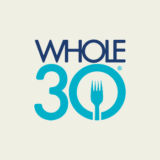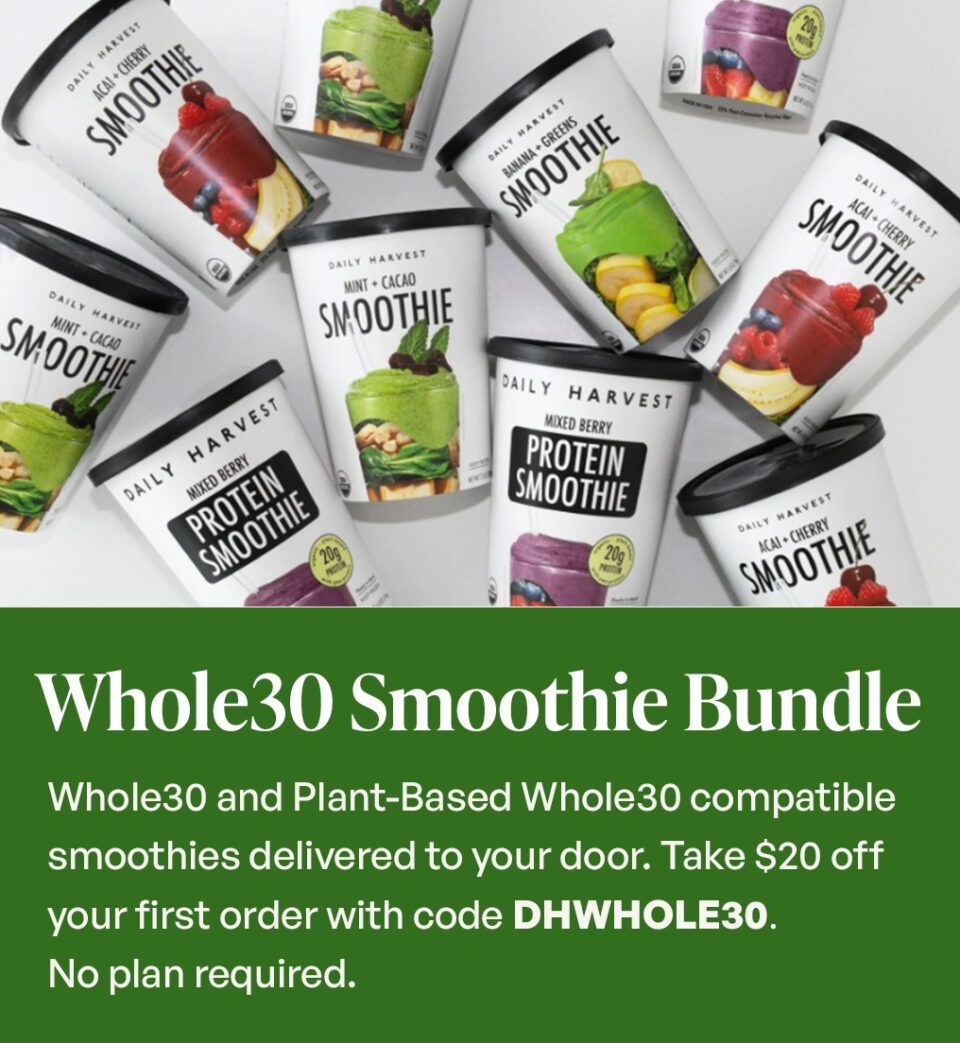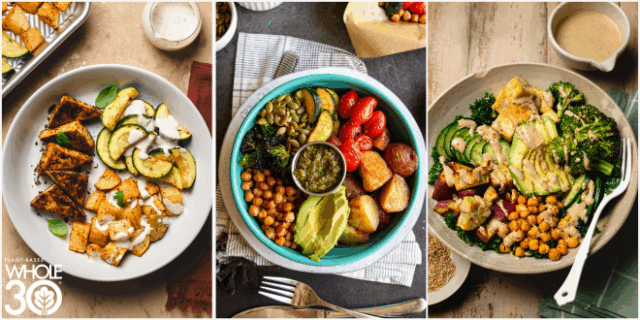Omega-3 fatty acids are among the most important components of fats and offer a plethora of benefits. Fish may come to mind when thinking about omega-3s, but you won’t see any fish products in the Plant-Based Whole30. Instead, we’ll highlight plant-based omega-3s and where you can find them, plus some bonus recipe ideas that incorporate a few of the best plant sources of omega-3s.
What are omega-3s?
Omega-3 fatty acids are essential fats that affect our overall health by providing unsaturated or healthy fats for our bodies to use in support of many bodily systems. This includes our heart, joints, brain, and eyes. They are important because our bodies can’t make these fatty acids, and they must come from food or supplementation.
There are three main categories of omega-3s: alpha-linolenic acid (ALA), eicosapentaenoic acid (EPA), and docosahexaenoic acid (DHA). All are needed for optimal health. Let’s look at these more closely and then I’ll highlight the best plant-based foods with omega-3s.
What is alpha-linolenic acid (ALA)?
ALA is the plant-based omega-3, meaning it comes only from plant-based foods. This omega-3 is unique because it is the only one with a dietary requirement. The daily recommendation for women is 1.1 grams, while men need 1.6 grams.
What also makes ALA unique is it can be converted to DHA and EPA in the liver. The conversion rate varies from person to person and depends on enzymes, activity, genetics, and other factors.
New studies suggest that the rate of ALA conversion may be sufficient to maintain DHA levels by consuming plant-based sources of ALA.
What is EPA and DHA?
DHA and EPA are the most active forms of omega-3s, most commonly found in fatty fish, like salmon or sardines. Both provide similar health benefits to ALA, but no daily dietary minimum is currently set for DHA or EPA.
It’s not essential to have supplements or fortified foods with DHA, but having it may be beneficial. One stage of life where it is especially important is during pregnancy and lactation.
Benefits of vegan sources of omega-3s
Consuming foods high in omega-3s regularly can help decrease inflammation and improve health. The most common benefits are for heart, brain, and eye health, and for reducing inflammation in the body.
While it’s true that all omega-3s provide countless benefits, plant-based omega-3s have additional nutrients like fiber for gut health, calcium for healthy bones, and B vitamins for energy and metabolism.
Heart healthy
Omega-3s play a major role in supporting heart health. They can help maintain healthy triglyceride levels, which, when allowed to climb too high, can increase the risk of heart disease. Another heart-health benefit of these essential fats is they may help to sustain a healthy blood pressure, support normal levels of “bad” LDL cholesterol, and optimize “good” HDL cholesterol.
Omega-3s also have anti-inflammatory effects, which can help protect against inflammation, a known contributor to heart disease.
Inflammation and joint health
Chronic inflammation is linked to numerous health issues, including arthritis, metabolic disease, and other autoimmune diseases. Omega-3s can help reduce inflammation and joint pain by reducing cytokine levels that may cause inflammation and joint swelling.
While fish oil is a go-to recommendation for joint health, utilizing plant-based omega-3 foods may also help, as well. Some studies have found that those with arthritis who eat omega-3-rich foods have less stiffness and joint tenderness.
Brain and eye health
DHA is largely responsible for the structure of our eyes and brain. It’s an essential nutrient for overall brain health in terms of supporting memory and cognitive function. Some research has also suggested that omega-3s have been linked to improvements in mood, but more research is needed to confirm or deny results.
How can I get omega-3s without fish?
This is a common question for vegans and for those who have fish allergies. There are three ways to get a good amount of omega-3s without eating fish: relying on ALA-rich foods, fortified foods, or an algal-based supplement.
To hit the amount of omega-3s needed without fish, here are the top three plant-based foods with the most omega-3s—walnuts, hemp, and chia seeds.
Walnuts
Walnuts come in at number three on the list of most plant-based omega-3s. A one-ounce serving provides 2.5 grams ALA, which hits the daily recommendation for men and women. Beyond healthy fats like omega-3s, walnuts offer fiber, magnesium, and antioxidants, making them filling and heart-healthy.
Easily get a serving of walnuts in our Lentil-Walnut Nachos recipe.
Hemp seeds
A heaping one-ounce serving of hemp seeds provides 2.6 grams ALA to help support eye, brain, and skin health. In addition to plant-based omega-3s, hemp seeds offer high-quality protein with all nine essential amino acids. They also are loaded with iron, zinc, and vitamin E.
Chia seeds
Not only are chia seeds packed with nutrients like fiber and calcium, they also are high in ALA, offering 5 grams per ounce. Chia seeds may help in reducing inflammation, and aid in promoting good gut health by adding about 10 grams of fiber.
Add chia seeds to your breakfast by making the Plant-Based Whole 30 Strawberries and Cream Chia Pudding.
Who should take an omega-3 supplement?
After calculating the amount of plant-based omega-3s you’re consuming, you can also cross-reference with specialty lab work to see your omega-3 index. If you’re considering taking a supplement, first speak with your healthcare team (doctor and dietitian).
This is the best way to determine if you need a supplement. And if you’re going the supplement route, look for a product that’s third-party tested and free of any off program ingredients on the Plant-Based Whole30 compatibility sheet.
Final omega-3 thoughts
Overall, omega-3s are an important part of your diet regardless of whether you eat meat, fish, or just plants. Those of us who don’t eat fish need to prioritize getting enough ALA each day. And luckily there are plenty of options and Plant-Based Whole30 recipes to help you meet that goal.
To have delicious recipes and plant-based eating tips sent to you, sign up for the Whole30 email list. You’ll get a variety of compatible recipes, insightful articles, and much more delivered to your inbox every week.
















